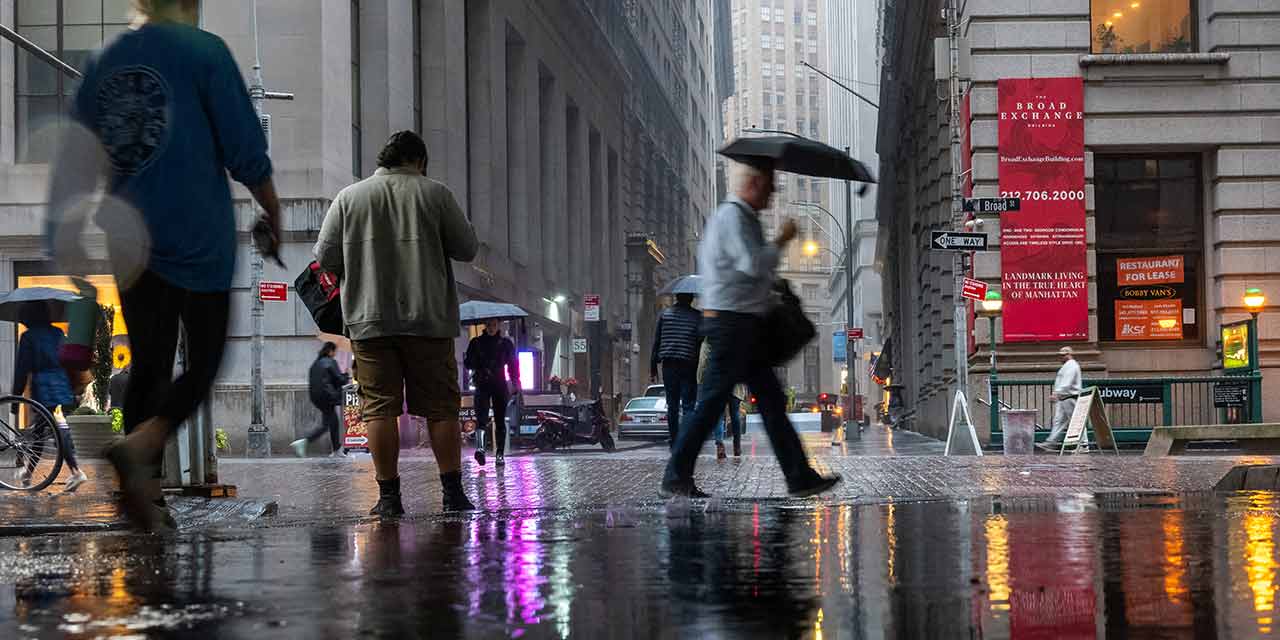- Feb 5, 2002
- 166,616
- 56,253
- Country
- United States
- Faith
- Catholic
- Marital Status
- Married
- Politics
- US-Others
With real wages at 2015 levels, life milestones, such as buying a home, are increasingly unachievable.
“Why are the vibes so bad?” ask legions of commentators, noting the disconnect between polling on the economy and top-level economic indicators. The unemployment rate is within spitting distance of 60-year lows, and measured inflation has dropped from a punishingly high 9 percent rate to a lower, though still too high, 3.2 percent.
And yet, citizens are unhappy with the economy. According to a New York Times–Siena poll, 81 percent of registered voters described the condition of the economy as fair or poor, and only 19 percent called it good or excellent. Another poll, conducted by the Financial Times and the University of Michigan, found that a majority of voters said that they are worse off under President Biden then they were before, and only 14 percent said that they are better off. By a 59 percent to 37 percent margin, the Times–Siena poll found voters trusting Donald Trump more than President Biden on the economy.
To reconcile voters’ discontent with the economic data, we shouldn’t consider the top-level employment and inflation indicators separately. Instead, we should combine them—and when we do, we observe workers’ real (that is, after inflation) wages have declined significantly in recent years.
Some commentators argue that real wages are rising, but these claims are based on the popular average hourly earnings measure from the Bureau of Labor Statistics’ Current Employment Statistics. Average hourly earnings is a less useful indicator now because of large workforce-composition changes. During the pandemic, the economy shed large numbers of low-paying service jobs (for instance, in leisure and hospitality), which pushed the average wage in the economy higher. The average moved up because low-paying jobs dropped from BLS’s sample, not because individuals experienced strong wage growth. The effect reversed as the economy began adding those low-paying service jobs back, which pushed average hourly earnings down. Those composition effects linger today, as the economy is still short 560,000 leisure and hospitality jobs (adjusting for labor-force growth), relative to pre-pandemic levels, due largely to firms’ difficulty finding workers.
Continued below.

 www.city-journal.org
www.city-journal.org
“Why are the vibes so bad?” ask legions of commentators, noting the disconnect between polling on the economy and top-level economic indicators. The unemployment rate is within spitting distance of 60-year lows, and measured inflation has dropped from a punishingly high 9 percent rate to a lower, though still too high, 3.2 percent.
And yet, citizens are unhappy with the economy. According to a New York Times–Siena poll, 81 percent of registered voters described the condition of the economy as fair or poor, and only 19 percent called it good or excellent. Another poll, conducted by the Financial Times and the University of Michigan, found that a majority of voters said that they are worse off under President Biden then they were before, and only 14 percent said that they are better off. By a 59 percent to 37 percent margin, the Times–Siena poll found voters trusting Donald Trump more than President Biden on the economy.
To reconcile voters’ discontent with the economic data, we shouldn’t consider the top-level employment and inflation indicators separately. Instead, we should combine them—and when we do, we observe workers’ real (that is, after inflation) wages have declined significantly in recent years.
Some commentators argue that real wages are rising, but these claims are based on the popular average hourly earnings measure from the Bureau of Labor Statistics’ Current Employment Statistics. Average hourly earnings is a less useful indicator now because of large workforce-composition changes. During the pandemic, the economy shed large numbers of low-paying service jobs (for instance, in leisure and hospitality), which pushed the average wage in the economy higher. The average moved up because low-paying jobs dropped from BLS’s sample, not because individuals experienced strong wage growth. The effect reversed as the economy began adding those low-paying service jobs back, which pushed average hourly earnings down. Those composition effects linger today, as the economy is still short 560,000 leisure and hospitality jobs (adjusting for labor-force growth), relative to pre-pandemic levels, due largely to firms’ difficulty finding workers.
Continued below.

Why Americans Dislike the Economy
With real wages at 2015 levels, life milestones, such as buying a home, are increasingly unachievable.
 www.city-journal.org
www.city-journal.org
